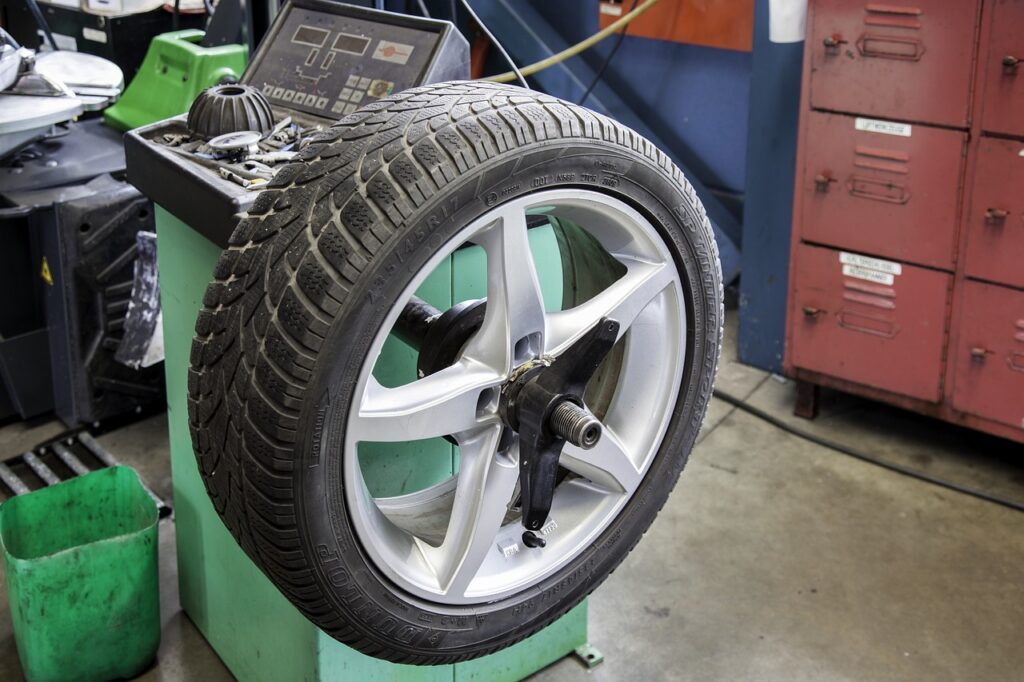Are you wondering if putting on winter tires during the colder months will have a significant impact on your vehicle’s fuel economy? Well, today we will explore this very question and shed some light on whether the switch to winter tires could be affecting your gas mileage. So, grab a cozy seat and let’s dive into the world of winter tires and fuel efficiency!

Overview of Winter Tires and Fuel Economy
Winter tires, also known as snow tires, are specifically designed to provide improved traction, handling, and braking performance in cold weather conditions, including snow, ice, and slush. These tires are made with special rubber compounds and tread patterns to ensure better grip on slippery surfaces. On the other hand, fuel economy refers to the efficiency with which a vehicle utilizes fuel, measured in terms of miles per gallon (MPG) or liters per kilometer (L/100km). It is important to understand the relationship between winter tires and fuel economy to make informed choices.
Definition of winter tires
Winter tires are designed with a unique tread compound that remains flexible even in freezing temperatures. This flexibility allows the tire to conform to the road surface more effectively, providing better traction and gripping power. Additionally, winter tires have deeper grooves and sipes in their tread pattern, which help to evacuate snow, slush, and water from the tire’s contact patch, further enhancing traction. The design and composition of winter tires vary from those of all-season or summer tires, making them specifically suited for winter driving conditions.
Importance of fuel economy
Fuel economy plays a crucial role in the overall cost of vehicle ownership and its impact on the environment. Improved fuel efficiency not only saves money at the gas pump but also reduces carbon emissions and dependence on finite fossil fuels. With the rising costs of fuel and increased environmental consciousness, achieving optimal fuel economy has become a concern for many vehicle owners.
Relevance of the topic
Understanding the potential impact of winter tires on fuel economy is important for individuals living in regions with severe winter weather. Since winter tires are designed to provide better traction and safety, it is essential to evaluate the trade-off between enhanced performance and potential fuel consumption. By exploring the factors affecting fuel economy and analyzing empirical studies, we can assess whether winter tires significantly affect the vehicle’s fuel economy.
Factors Affecting Fuel Economy
Several factors contribute to a vehicle’s fuel economy, regardless of the type of tires used. By examining these factors, we can better understand the potential influence of winter tires on fuel efficiency.
Aerodynamic drag
Aerodynamic drag refers to the resistance encountered by a vehicle as it moves through the air. Vehicles with poor aerodynamics experience higher drag, which results in increased fuel consumption. While winter tires do not directly affect aerodynamics, some winter tire models may have more aggressive tread patterns, potentially promoting increased air resistance. However, the impact on fuel economy from this factor alone is generally minimal.
Rolling resistance
Rolling resistance is the force required to keep a tire rolling. Tread design, tire compound, and inflation pressure significantly affect the rolling resistance of a tire. Low rolling resistance tires are designed to minimize energy loss while rolling, resulting in improved fuel economy. Winter tires, due to their unique tread patterns and rubber compounds, may have slightly higher rolling resistance compared to all-season or summer tires. However, technological advancements have led to the development of winter tires with reduced rolling resistance, mitigating the potential impact on fuel efficiency.
Tire tread design
Tire tread design, including tread depth and the presence of sipes, affects both traction and fuel economy. Winter tires have deeper tread grooves and more sipes to enhance their ability to grip snow and ice. While the deeper tread grooves may contribute marginally to decreased fuel economy due to increased rolling resistance, the overall effect is usually insignificant. The benefits of improved traction and safety provided by winter tires outweigh any potential reduction in fuel efficiency resulting from tread design.
Winter Tires and Fuel Efficiency
To understand the relationship between winter tires and fuel efficiency, it is essential to consider specific aspects such as tread depth, tire compounds, and tire pressure.
Effect of winter tire tread depth
Winter tire tread depth plays a role in both traction and fuel efficiency. As winter tires wear down over time, the depth of their tread grooves decreases, potentially impacting their ability to channel snow, slush, and water away. However, studies have shown that modern winter tires maintain their performance and grip even with reduced tread depth. The effect of tread depth on fuel efficiency is generally minimal, and it is recommended to replace winter tires before the tread depth reaches unsafe levels.
Comparison of winter tire compounds
Different tire compounds can have varying effects on fuel efficiency. Winter tires are typically made from softer rubber compounds that remain pliable in cold temperatures. While these compounds may marginally increase rolling resistance compared to all-season tires, the difference is generally insignificant. Tire manufacturers have made significant advancements in rubber compound technology, developing winter tires that offer optimal performance without significantly compromising fuel economy.
Tire pressure and fuel economy
Proper tire pressure is crucial for optimal fuel economy, regardless of the tire type. Underinflated tires increase rolling resistance and require more energy to keep the vehicle moving, resulting in decreased fuel efficiency. Winter tires should be inflated to the manufacturer’s recommended pressure, ensuring they perform optimally and minimize any negative impact on fuel economy.
Case Studies on Winter Tires and Fuel Economy
Various independent tests, studies conducted by tire manufacturers, and real-world user experiences provide insights into the impact of winter tires on fuel efficiency.
Independent tests on winter tire fuel efficiency
Independent tests conducted by impartial organizations have evaluated the fuel efficiency of winter tires extensively. These tests measure fuel consumption under controlled conditions using identical vehicles and evaluating different tire models, including winter tires. The results consistently indicate that the impact of winter tires on fuel economy is minimal, with differences often falling within the margin of error.
Manufacturer studies and claims
Tire manufacturers conduct internal tests and studies to assess the performance and fuel efficiency of their products. While these studies may present a biased viewpoint, they provide valuable insights into the efforts made by manufacturers to optimize fuel efficiency without compromising winter tire performance.
Real-world user experiences
User experiences provide firsthand accounts of how winter tires affect fuel economy in everyday driving conditions. While individual experiences may vary based on driving habits, vehicle type, and specific tire models, the collective voice suggests that any reduction in fuel efficiency resulting from winter tires is negligible for the average driver. Many users report no noticeable difference in fuel economy when using winter tires compared to all-season or summer tires.

Weather Conditions and Fuel Economy
Winter weather conditions have a direct impact on fuel consumption. Cold temperatures, snow, and icy road surfaces pose challenges that can affect fuel efficiency.
Impact of winter weather on fuel consumption
Cold temperatures affect fuel consumption by increasing engine warm-up time and reducing overall engine efficiency. In winter conditions, engines require more energy to reach their optimal operating temperature, resulting in increased fuel consumption during shorter trips. Additionally, icy and snowy roads increase rolling resistance, requiring more power to maintain vehicle propulsion.
Winter tire performance in different conditions
Winter tires excel in winter weather conditions by providing enhanced traction and braking performance compared to all-season or summer tires. The improved control and grip offered by winter tires can reduce the need for abrupt acceleration or braking, promoting smoother driving and potentially mitigating any negative effects on fuel economy.
Tips to Improve Fuel Efficiency with Winter Tires
To optimize fuel efficiency while using winter tires, certain tips and practices can be implemented.
Proper tire selection
Choosing winter tires that have been tested and certified for fuel efficiency can help ensure that the tire’s performance meets your needs while minimizing the impact on fuel economy. Consulting tire ratings and reviews can provide valuable insights into the fuel efficiency of various tire models.
Regular maintenance
Maintaining proper tire pressure is crucial for optimal fuel efficiency. Regularly checking and adjusting tire pressure, especially during temperature fluctuations, ensures that winter tires perform at their best while minimizing rolling resistance.
Driving techniques
Adopting fuel-efficient driving techniques can further enhance fuel economy when using winter tires. Avoiding aggressive acceleration or braking, maintaining a steady speed, and planning routes to minimize unnecessary trips all contribute to improved fuel efficiency. Additionally, removing excess weight from the vehicle and minimizing idle time can also help conserve fuel.

Cost Considerations of Winter Tires and Fuel Efficiency
While winter tires may involve an initial cost, they can lead to potential long-term fuel savings.
Initial cost of winter tires
Winter tires are an investment, with costs varying depending on the tire size, brand, and performance characteristics. However, the initial cost of winter tires must be considered alongside their potential benefits, including improved safety and enhanced winter performance.
Potential long-term fuel savings
While winter tires may marginally affect fuel efficiency, their optimized traction and grip reduce the likelihood of accidents and promote safer driving. By minimizing the risk of accidents and subsequent vehicle damage, winter tires can result in long-term fuel savings and reduced overall costs.
Cost-benefit analysis
Conducting a cost-benefit analysis can help determine the economic value of winter tires. Considering factors such as the cost of fuel, potential long-term savings, and the added safety benefits can provide a comprehensive understanding of the true value of winter tires.
Environmental Impact of Winter Tires
Winter tires, like all tires, have specific environmental impacts throughout their lifecycle.
Tire manufacturing and disposal
The production of winter tires involves the use of materials and energy, which contribute to carbon emissions and other environmental impacts. Additionally, the disposal of worn-out or damaged winter tires requires proper waste management practices to minimize negative environmental effects.
Carbon footprint of winter tires
The production and use of winter tires contribute to the overall carbon footprint of the automotive industry. However, advancements in tire manufacturing technology and the gradual adoption of sustainable practices within the industry aim to minimize these impacts. When considering the environmental impact of using winter tires, it is crucial to consider their benefits in terms of safety and reduced accidents, which also contribute to overall environmental sustainability.

Government Regulations and Winter Tires
Government regulations and policies regarding winter tire usage vary across regions, impacting their adoption and potential incentives.
Mandatory laws for winter tire usage
Some regions have implemented mandatory winter tire laws during specific seasons or for certain road conditions. These laws aim to improve road safety and reduce accidents. Compliance with these regulations ensures that vehicles are equipped with winter tires, thereby contributing to enhanced safety and potentially reducing accident-related fuel consumption.
Incentives for using winter tires
Some governments and insurance providers offer incentives such as reduced insurance premiums or tax benefits for using winter tires. These incentives aim to promote the use of winter tires and encourage safer driving practices. By taking advantage of these incentives, individuals can offset the initial costs of purchasing and maintaining winter tires.
Environmental policies
Government environmental policies aim to reduce carbon emissions and promote sustainability. While winter tires may have minor environmental impacts during their lifecycle, they promote increased safety and can indirectly contribute to overall environmental sustainability by reducing accidents and subsequent fuel consumption.
Conclusion
Winter tires play a crucial role in providing the necessary traction and safety for driving in winter conditions. While their impact on fuel economy may be marginal, the benefits they offer far outweigh any potential reduction in fuel efficiency. Proper tire selection, regular maintenance, and adopting fuel-efficient driving techniques can further optimize fuel economy when using winter tires. The cost considerations, environmental impact, and government regulations related to winter tires are important factors to consider when making informed choices. By understanding the relationship between winter tires and fuel economy, individuals can confidently navigate winter roads while maintaining optimal fuel efficiency.


